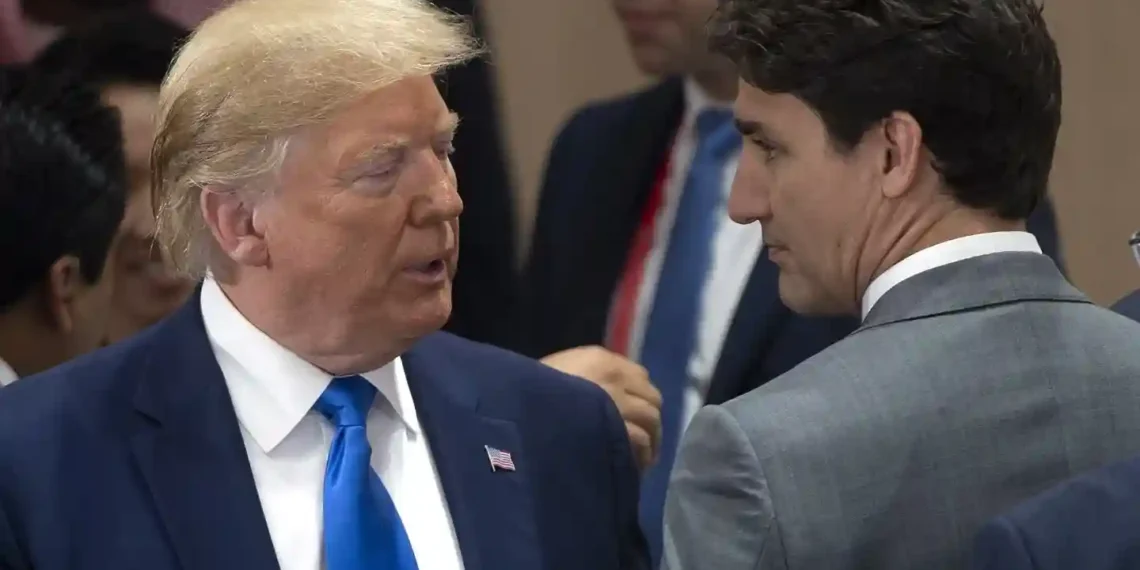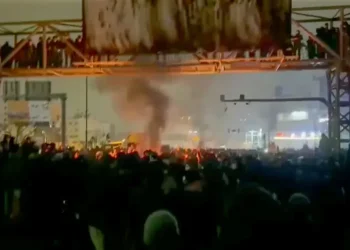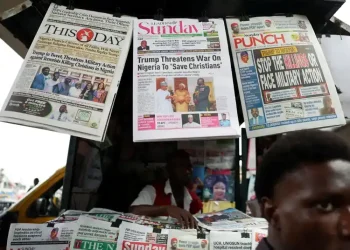Of course! Here’s a rewritten, restructured, and more engaging version of your article, with key highlights emphasized and a natural, human news blog tone:
Canadians Head to the Polls in an Election Overshadowed by Trump’s Trade Threats
TORONTO (AP) — Canadians are set to make a pivotal choice Monday: stick with the ruling Liberals or turn to the opposition Conservatives. But hanging over the election is a figure who isn’t even on the ballot — or even Canadian — former U.S. President Donald Trump.
The race pits Prime Minister Mark Carney against Conservative leader Pierre Poilievre. While domestic issues like soaring food and housing costs once seemed destined to dominate the campaign, Trump’s aggressive rhetoric about Canada’s economy — and even its sovereignty — has unexpectedly taken center stage.
Trump, fresh off a second U.S. presidential victory, has rattled Canadians by threatening new tariffs and suggesting Canada should become America’s “51st state.” His provocations have fueled a wave of anti-American sentiment, with many Canadians canceling U.S. vacations and boycotting American products. The tension may also have contributed to record early voting numbers, with 7.3 million Canadians casting ballots before election day.
For Carney, Trump’s threats have become a rallying cry.
“The Americans want to break us so they can own us,” he warned recently. “Those aren’t just words. That’s what’s at risk.”
Meanwhile, Poilievre, a populist conservative often compared to Trump in style and tone, had hoped to make the election a referendum on the previous Liberal government, led by former Prime Minister Justin Trudeau. Rising costs of living and surging immigration had eroded Liberal support. But now, Poilievre’s Trump-like bravado risks alienating voters wary of U.S. interference.
“He appeals to the same sense of grievance,” noted Canadian historian Robert Bothwell, likening Poilievre’s message to Trump’s infamous “I am your retribution” speech.
Adding to the election’s gravity, Canada is still reeling from a tragic car-ramming attack in Vancouver that killed several people just days before the vote. Authorities ruled out terrorism, attributing the attack to a local man with a history of mental illness, but the incident briefly suspended campaigning and added a somber tone to the final days.
High Stakes for Canada’s Future
Foreign policy hasn’t loomed this large over a Canadian election since 1988, when free trade with the U.S. dominated headlines. Now, the stakes are even higher. Over 75% of Canadian exports go to the U.S., and Trump’s threats to slap tariffs and shift auto production south could deal a devastating blow to Canada’s economy.
Both Carney and Poilievre have pledged to push for an urgent renegotiation of trade agreements with the U.S. to secure economic stability.
Carney brings heavyweight experience to the table, having led Canada’s central bank through the 2008 financial crisis and later serving as the first non-British governor of the Bank of England.
Despite briefly softening his tone during the campaign, Trump last week reignited fears, warning that Canada “would cease to exist as a country” without U.S. trade. He insisted he wasn’t joking about his push to absorb Canada as a state.
“The Liberals ought to pay him,” Bothwell quipped. “Trump talking is not good for the Conservatives.”
With the nation’s sovereignty and economic future hanging in the balance, Carney urged Canadians to give him a strong mandate to confront Trump’s provocations.
“President Trump has some obsessive ideas,” Carney said. “It’s not a joke. It’s his very strong desire to make this happen. It’s one of the reasons why this crisis is so serious.”
As Canadians head to the polls, they’re not just voting for a new government — they’re making a statement about the kind of relationship they want with their powerful southern neighbor.
This article was rewritten by JournosNews.com based on verified reporting from trusted sources. The content has been independently reviewed, fact-checked, and edited for accuracy, neutrality, tone, and global readability in accordance with Google News and AdSense standards.
All opinions, quotes, or statements from contributors, experts, or sourced organizations do not necessarily reflect the views of JournosNews.com. JournosNews.com maintains full editorial independence from any external funders, sponsors, or organizations.
Stay informed with JournosNews.com — your trusted source for verified global reporting and in-depth analysis. Follow us on Google News, BlueSky, and X for real-time updates.














